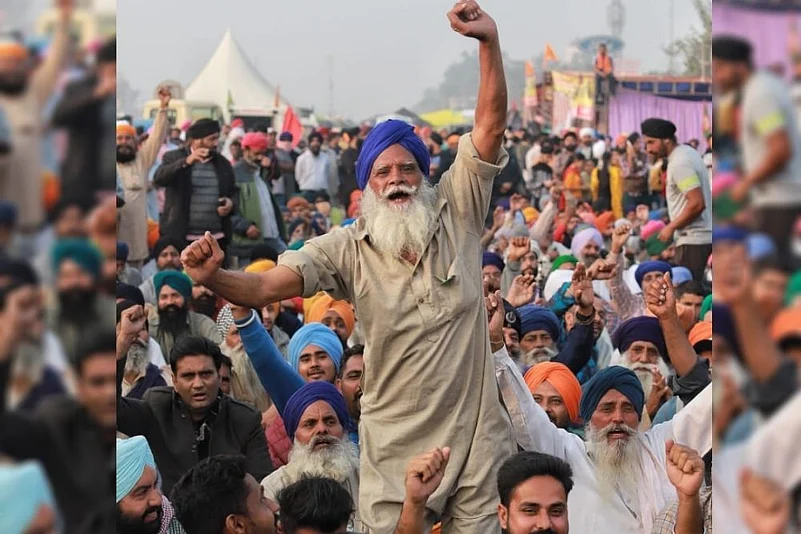Driven by a desire to offer protesting farmers a platform to "tell their stories of resistance" in their own words and help them stay connected with their families back home, a city-based NGO has provided free WiFi links to them on both sides of a Delhi-Haryana border point.
On the Delhi side, a dedicated router with a decent Internet speed has been installed. On the Haryana side, portable systems were being used to help farmers get better online connectivity, which are also being used by their children for virtual classes.
"We started the facility of free WiFi about five days ago. We had originally come here to distribute food and other supplies. But, we realised that while the farmers had sufficient supplies, it was mobile connectivity which was getting difficult," said Abhishek Jain, whose NGO provided the WiFi connectivity.
The WiFi username has been scribbled on cardboards and hung on a few posts holding the main protest shamiana on the Delhi side of the Singhu border. There is no password, so anyone can log in, he added.
A farmer from Punjab was seen making a video call on his smart phone while a few others used the Internet connectivity to browse the web and see the latest news updates and post live updates from the protest site.
"While there is media coverage of the issue, we felt the stories of struggle and resistance of farmers should be told in their own words too. These farmers, who feed our country, are on the streets. India and the rest of the world need to hear their voices, undiluted, unedited, unadulterated," Jain told PTI.
The 25-year-old social worker from Vasant Vihar in south Delhi, said, he has a degree in civil engineering and an MBA, but something drove him to "work for and give back to the society, as a youngster".
"My grandfather was born in Panipat, not far from the Singhu Border. He moved to Delhi about 70 years ago. It was he and his stories which inspired me to take up social work, even though my friend will sometimes ask why was I wasting my MBA on social causes," he said.
Jain founded Abhishek Janshakti Foundation, about a year ago, which he says has grown to a team of about 30 members, mostly college and university students. At the protest site, the uniformed volunteers of the NGO were seen helping people get connected to the free WiFi.
"On the Haryana side, we have installed a portable Wi-Fi system, and children of the farmers are using it too for their online classes.
"Our objective was easy providing connectivity to help farmers express themselves through social media and stay connected to their families. We should listen to farmers as India is still an agriculture dominant country. In a democracy, their voices should matter," said Subir Dass, one of the volunteers.
The NGO members were initially collecting testimonies of various farmers, but now many have started "voicing their words" on their own, the young social worker said.
"Some of the farmers opened Facebook pages to live stream the events unfolding... I myself have helped a few of them open Facebook pages. A 200 Mbps line via a dedicated dish makes the Internet speed quite viable. The speed goes down a bit when more people get linked to it," he said.
At the protest site, fiery speeches, fluttering flags of the Bharat Kisan Union and other peasant bodies, and spirited 'langars' that invited everyone to join in, added to the charged atmosphere.
Some of the farmers who have gathered here, said on the Haryana side solar panels have been installed on tractor-trolleys, making a makeshift unit to recharge mobile phones.
"They are calling it 'mobile langar' of sorts. I've heard about it, but it is a bit far from the main protest site," Jain said.
The social worker, who visits the protest site every day, rued that in a country like India, "farmers either commit suicide or have to leave their farms behind to fight for their rights".


























